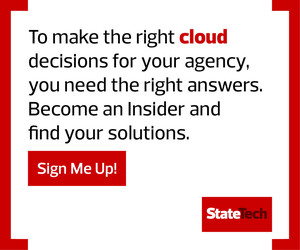Cleaning Up Data to Use Across Applications
With today’s cloud architecture, state and local governments can make data accessible through utilities that provide amazing agility.
Let’s look at a very basic challenge. Say a local agency has a legacy Excel spreadsheet with a column for dates. The dates in that column have been maintained by different personnel over many years, and they appear in different formats, whether Feb. 1, 2023, or 02/01/23. That “dirty data” cannot be easily used by different applications that may want to read and send it somewhere else because of differences in the date formats. The data is important because it tells us an expiration date or an actualization date or some other info that the agency requires. But other applications cannot easily understand the mixed values contained within that Excel sheet column.
Modern data platforms provide a comprehensive approach for the processing, analyzing and presentation of data. Often, these platforms are Software as a Service solutions that clean data and share it quickly and effectively. Modern data platforms are secure, governed, scalable and flexible.
Governments can make better data-led decisions thanks to the capabilities of modern data platforms.
DIVE DEEPER: State and local agencies automate data analysis with software as a service.
IT Modernization Requires Fresh Thinking and Good Partners
Many agencies have compelling reasons for storing data on-premises, but this can create data silos that prevent the elevation of citizen services. Siloed data is very hard to aggregate or analyze, and agencies that adopt cloud services may find they invest in multiple clouds.
Agencies may also find limited utility in data stored across various cloud services, but modern data platforms can weave this data together for seamless consumption. This unified front meets citizens wherever they may be, so that agency websites no longer seem clunky.
Many state and local agencies advanced to the point where they were pooling Big Data into data lakes a decade ago. This dirty data formed a “data swamp,” which was still difficult for state and local governments to feed into their operations. They may have chosen to clean data through data marts that place it into small databases for use by applications, but modern data platforms can slice through Big Data without intermediate steps.
Agencies that cling to legacy architecture lack the agility that modern data platforms can provide. To refresh their perspective, governments may turn to managed service providers such as CDW. Good private sector partners engage in conversations with public sector agencies about their challenges. Those conversations may take a long time, but trusted partners will strive to understand the complexity of a problem before prescribing solutions or selling a service.
This article is part of StateTech’s CITizen blog series. Please join the discussion on Twitter by using the #StateLocalIT hashtag.












